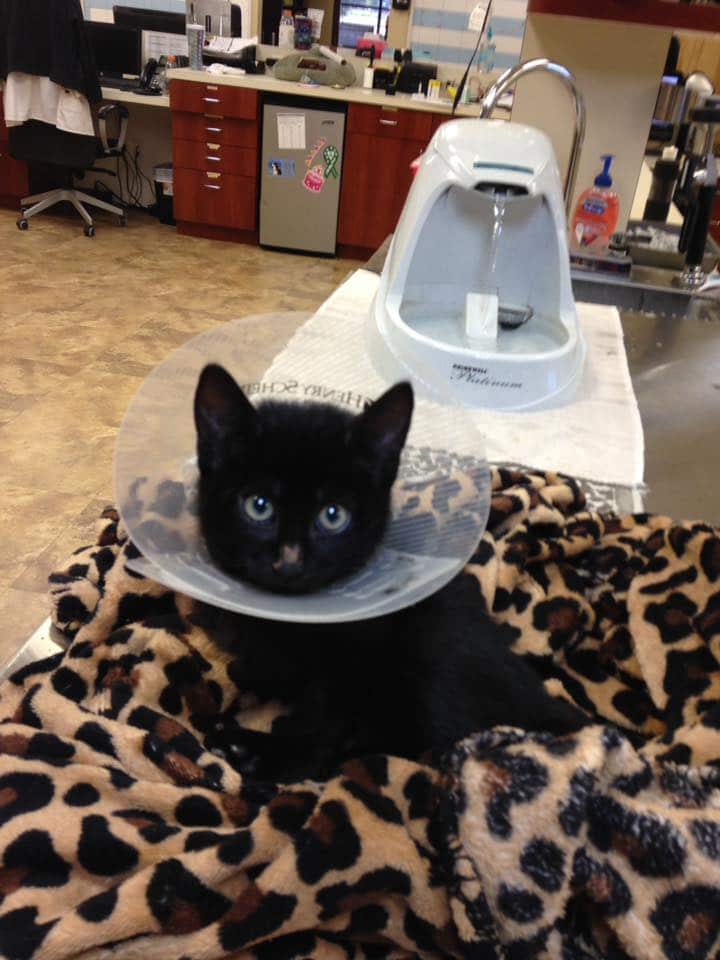
Pediatric and Geriatric Care
While it is always important to maintain your pet’s good health, there are two critical stages of their life that require additional care. This is during your pet’s youth and during their senior years.
Proper pediatric care helps your pet to establish the strong foundation they will need for a healthy, strong body throughout their life. Proper geriatric care helps to ensure your pet receives the nutrition or medicine they need as they age and their body’s needs change, so that they can age comfortably and gracefully. 121 Animal Hospital is proud to provide thorough pediatric and geriatric care to pets.
Pediatric Care
Veterinary pediatric care can begin as soon as a pet is born, and can continue until the pet has reached early adulthood and is well-established on the road to good health. Newborn kittens and puppies can benefit from a complete physical examination as early as possible. This examination can help to determine whether they have heart murmurs, eye or ear issues, skin issues, hernias, internal or external parasites or any other physical or health issue that needs immediate address. Obviously, the earlier any physical or health issues are detected and addressed, the more likely they can be quickly and thoroughly resolved.
As your pet grows, they will need infectious and congenital disease screening as well as an individualized immunization program. These steps will help to eliminate the possibility of serious, life-threatening illnesses that, even if not fatal, could seriously diminish your pet’s quality or duration of life. Your veterinarian will also discuss with you a proper nutrition, training and exercise plan, so that your pet grows fit, strong and healthy.
Your pet’s ability to comfortably and properly interact with humans and other animals can be a huge influence on their health and happiness in life. It is for this reason that your veterinarian will want to make sure you have a socialization plan for your new pet, one that exposes him gently to other individuals, animals, environments, activities and objects. A variety of positive and diverse experiences can help them to enjoy these things without fear or aggression, and your praise and interaction gives them the best reward they could hope for.
As part of your puppy’s pediatric care, your veterinarian may recommend that you enroll them in socialization or training classes. This can help you learn how to interact well with your puppy, reinforce your position as master of the household, socialize your puppy in a controlled, ideal environment, and engage and stimulate your puppy’s brain in positive ways.
Geriatric Care
While we are aware of the fact that our pets age much more quickly than we do, we may not understand what this really means about their care. Depending on a specific breed’s average lifespan, most pets are considered seniors by the time they reach seven years of age. Any pet over the age of twelve is considered a geriatric pet, and as such needs even more specialized care than senior pets in order to manage their changing body and any physical or health issues that may arise.
Pets experience many of the same kinds of physiological changes as they age that humans do. This means that their joints can begin to hurt, they can gain unhealthy weight, they may experience mental slowing, and they can develop cataracts, diabetes, heart disease, kidney disease, arthritis and more. Fortunately, early detection, diagnosis and treatment of physical or health issues in a geriatric pet often results in a better outcome.
Following are just some of the symptoms that indicate a geriatric pet should see their veterinarian as soon as possible:
- Sudden change in appetite or thirst
- Sudden change in urination habits (increase or decrease from normal)
- Difficulty getting up or down, or climbing stairs
- Coughing
- Exercise intolerance or sudden disinterest
- Weight loss
- Sneezing
- Foul breath
- Dropping food excessively while eating or difficulty eating
- Reduced energy
- Apparent loss of vision or hearing
- Dental issues
- Pain when moving or being touched
- Changes in behavior
- Dramatic health symptoms like vomiting or diarrhea
Depending upon your pet’s age and symptoms, your veterinarian may recommend x-rays, blood work, urinalysis, ECG’s, blood pressure checks or other tests.
Creating a Healthy, Happy Life
When it comes to helping your pet establish a healthy, happy life from a young age and move gracefully into their golden years, good preventive care is always best. At 121 Animal Hospital we are prepared to work with you and your pet to ensure that they achieve the absolute best quality of life for as long as possible. Contact us for more information about our pediatric and geriatric services.

